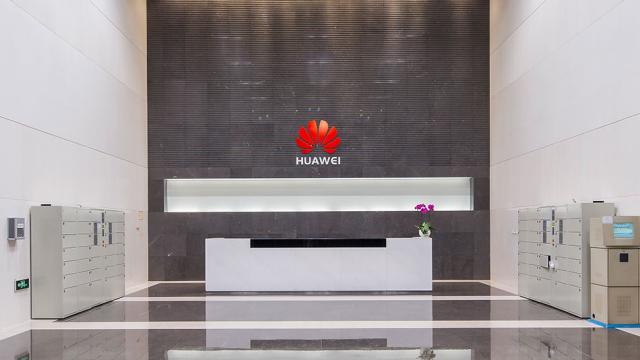Between the Russia scandal, Robert Mueller’s special investigation, and high-ranking officials seemingly stepping down left and right, the United States government hasn’t exactly presented a united front over the past year. However, based on remarks made at a Senate Intelligence Committee hearing on Tuesday, it seems there’s still one thing the government can agree on: That Huawei, and its fellow Chinese networking and smartphone producer ZTE, cannot be trusted.
Photo: Huawei
While Huawei maintains that it “poses no greater cybersecurity risk than any [information and communications technology] vendor,” the heads of the FBI, CIA, NSA and other major intelligence agencies all claim otherwise.
At the hearing, FBI Director Chris Wray testified, “We’re deeply concerned about the risks of allowing any company or entity that is beholden to foreign governments that don’t share our values to gain positions of power inside our telecommunications networks.”
Purchasing Huawei or ZTE products, Wray added, “provides the capacity to maliciously modify or steal information. And it provides the capacity to conduct undetected espionage.”
Meanwhile, NSA Director Admiral Michael Rogers stated, “This is a challenge I think that is only going to increase, not lessen over time for us. You need to look long and hard at companies like this.”
The issue these officials are getting at is that US intelligence believes that the Chinese telecom companies would be forced to comply with any request made by the Chinese government to obtain info being sent over Huawei- or ZTE-made devices. Despite these bold claims, US intelligence leaders have yet to cite a specific example of this behaviour taking place.
Furthermore, concerns about the trustworthiness of these Chinese companies seems hugely hypocritical when you consider that the FBI asked Apple to create a special government-only backdoor into iOS – and continues to push the need for encryption backdoors – which is the exact thing they are worried about the People’s Republic doing with Apple’s Chinese competitors. On top of that, it isn’t as though Huawei or ZTE are new companies, with Huawei even being the responsible for much of the hardware in Google’s Nexus 6P back in 2015.
When we asked Huawei for comment, a company spokesperson said the US government is attempting to hurt Huawei’s business:
Huawei is aware of a range of US government activities seemingly aimed at inhibiting Huawei’s business in the US market. Huawei is trusted by governments and customers in 170 countries worldwide and poses no greater cybersecurity risk than any ICT vendor, sharing as we do common global supply chains and production capabilities. We are committed to openness and transparency in everything we do. Ultimately Huawei will continue to develop its global business through a significant commitment to innovation and R&D and to delivering technology that helps our customers succeed in all markets that value the innovation and value it delivers.
When asked for a comment regarding the Senate Intelligence Committee hearing, ZTE responded by saying:
ZTE is proud of the innovation and security of our products in the US market. As a publicly traded company, we are committed to adhering to all applicable laws and regulations of the United States, work with carriers to pass strict testing protocols, and adhere to the highest business standards. Our mobile phones and other devices incorporate US-made chipsets, US-made operating systems and other components. ZTE takes cybersecurity and privacy seriously and remains a trusted partner to our US suppliers, US customers and the people who use our high quality and affordable products for their communications needs.
So despite a significant amount of pressure from the US government, it seems Huawei will forge on, even after those concerns reportedly caused both AT&T and Verizon to back out of major deals to carry Huawei phones in stores throughout the US.
[CNBC]
